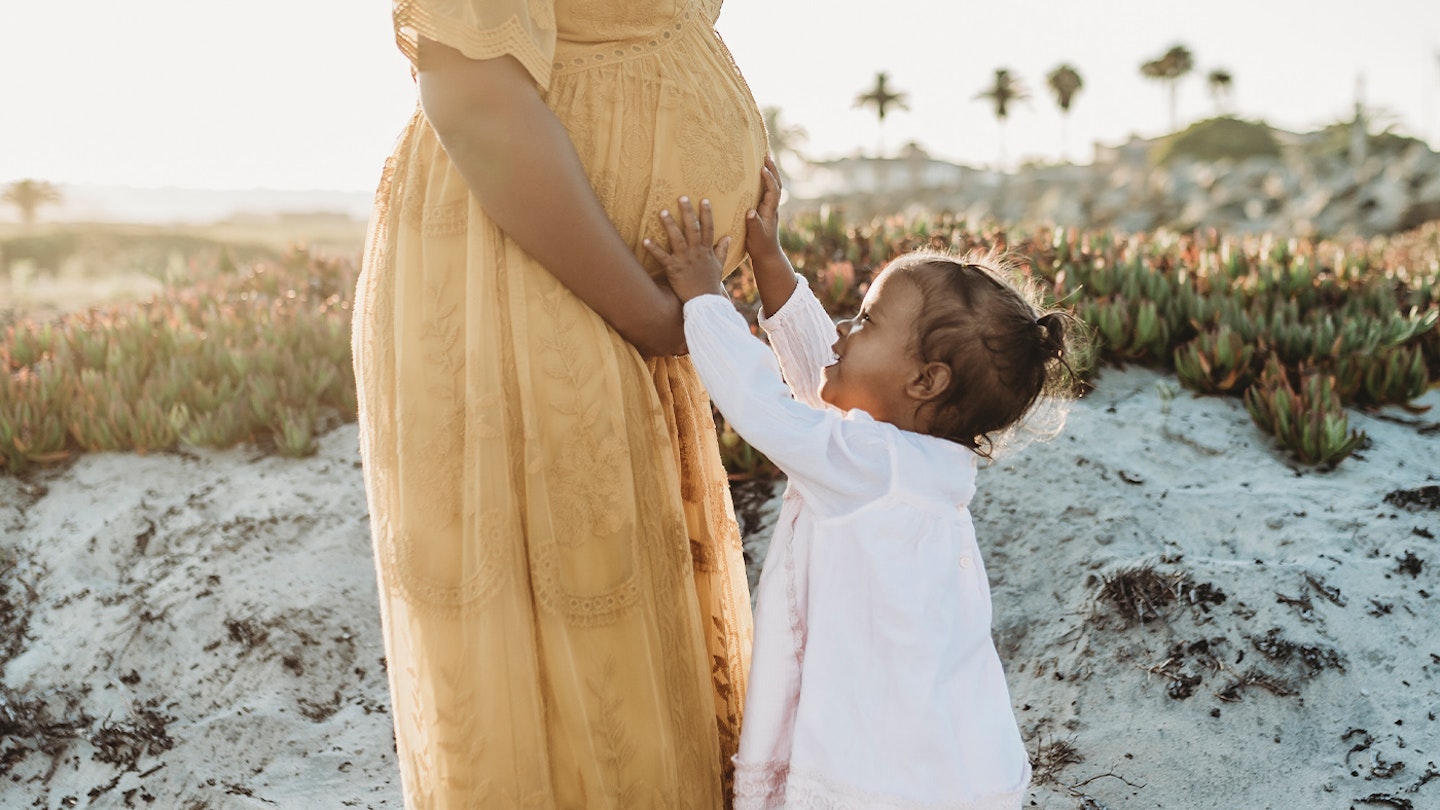Having another baby can be such an exciting time for the whole family, but you might be worried how your oldest child is going to cope with having to share their parents with their little baby brother or sister. So, anything you can do to make that first meeting with their younger siblinggo smoothly is always helpful. The secret? Making it as low key as you can.
Whether your tot is 18 months or three years, meeting a new sibling can be quite a lot to take in - make it easy breezy with these top tips.
1) Do the prep
As well as involving your toddler in parts of your pregnancy, a book can also help them start to understand what’s going to happen. ‘I like Hello Baby, which brings in ideas about birth and a new addition to the family,’ says Sarah Ockwell-Smith, author of ToddlerCalm: A Guide for Calmer Babies & Happier Parents.
2) Don’t expect too much
Your toddler’s only going to understand so much, so don’t worry about over explaining. ‘Excitement about a new baby varies and that’s normal,’ says Sarah. ‘It's just about gauging your child.’
3) Set the scene
If you think your older child will be freaked out by being and seeing you in hospital, save that first meeting for when you’re home. ‘Toddlers can also find newborn belly buttons strange with the cord stump, so perhaps have your baby in a nappy and dressed,’ says Sarah.
4) Pick your moment
Have that first sibling get-togetherwhen your toddler’s happy and not too tired (read: grouchy). ‘It’s important for you to be calm, too,’ says Sarah. ‘So if you think you’d feel more relaxed waiting another day, then do that.’
5) Keep it relaxed
Your two little ones meeting is a big moment, but try to not make it feel like that for your toddler. ‘Little ones tend to be interested in this first introduction, but keeping the pressure off will help him not feel too unsettled,’ explains Sarah.
6) Mind your language
This is about your toddler's feelings – as well as helping them understand that babies don’t really do much at this stage! ‘So, something like “This is our baby” or “This is your little sister”,’ says Sarah. ‘You could also add “Baby is really small now but can play with you loads when she’s older”.’
7) Expect heavy hands
Whether it’s your toddler being overly affectionate with their sibling or the other way around. ‘Toddlers are heavy handed with most things,’ says Sarah. ‘Some may hit or pinch the new baby – it’s not nasty or naughty behaviour, just feeling unsure.’ Supervise their time together and perhaps use a carrier or sling with the baby.
8) Have a family cuddle
For the first hold, start with you all on the sofa or in bed together. ‘Ask your child if they actually want a hold and respect their wishes if they say no,’ says Sarah. ‘But if they do, lay the baby on them in a way that you don’t need to worry about baby's head being supported, or even try a breastfeeding cushion.’
9) Hold onto routine
This will help that business-as-usual idea to take your child through the change. ‘It may be tempting to keep them off nursery or pre-school, especially if your partner’s off, too,’ says Sarah. ‘But actually it’s better to keep their routine as normal as possible.’
10) Be patient
Some regression in your toddler’s behaviour is to be expected around this time, whether it’s with sleep, playing up, or potty training. ‘It can happen after a few weeks as he realises the new baby is a permanent part of the family,’ says Sarah. ‘It’s just part of the process as he gets used to things.’
